Lip Butter Treatment for Dry Lips
| Phase | Ingredient | Percent (%) | Weight (g) |
|---|---|---|---|
| Phase A | Avocado oil | 26.0 | 26 |
| Castor oil | 20.0 | 20 | |
| Mango butter | 16.0 | 16 | |
| Rice bran wax | 12.0 | 12 | |
| Apricot kernel oil | 14.0 | 14 | |
| Squalane | 8.0 | 8 | |
| Isopropyl Myristate | 3.4 | 3.4 | |
| Phase B | Vitamin E | 0.3 | 0.3 |
| Flavored oil or essential oil | 0.3 | 0.3 |
You can help support my website and channel through the “buy me a coffee” page.
Here is the link: https://www.buymeacoffee.com/diycosmetica
Your support helps me keep sharing here more information and more formulas.
This lip butter melts easily on contact, delivering intense hydration and comfort to your lips. With rich emollients like Avocado, Mango Butter, and Apricot Kernel Oil, it provides a luxurious treatment for your lips. This formula helps lock in moisture, preventing dehydration and ensuring your lips stay soft and moisturized.
This lip butter treatment can be used as an overnight mask to achieve soft, hydrated lips.
Next, you will find more information on the ingredients in this formula and alternatives for the ingredients used.
Avocado oil has profoundly nourishing and moisturizing properties. Rich in vitamins A, D, and E and essential fatty acids, it penetrates deeply into the skin, providing hydration and promoting healing. Its emollient nature helps to smooth and soften dry, cracked lips while providing a protective barrier against harsh environmental elements. You can use olive oil instead of avocado oil.
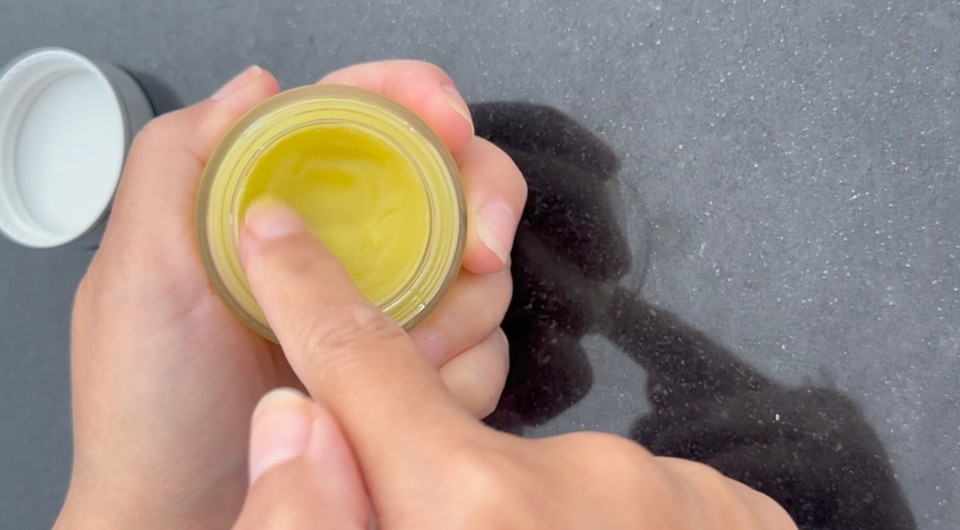
Castor oil is a thick, hydrating oil that forms a protective layer over the lips. It helps to lock in moisture and prevent further dehydration. Its ricinoleic acid content has anti-inflammatory properties, which can soothe irritation and discomfort associated with dry lips. You can use Jojoba oil instead, but Castor oil has a unique consistency that can not be replaced with other oils. If you have Lanolin, you can use 3% Lanolin and 17% Jojoba oil to replace the castor oil. Take into consideration that by adding Lanolin, the final product will no longer be vegan.
Lanolin is obtained from sheep wool. Lanolin has high moisturizing properties. It can retain moisture due to its high lipid content and similarity to the natural oils found in human skin.
Mango butter is a rich, creamy butter that provides intense hydration and helps to improve skin elasticity. It is high in vitamins A and C, which promote skin repair and rejuvenation. Mango butter also creates a protective barrier, preventing moisture loss and keeping lips soft and supple. You can use shea butter or cocoa butter instead.
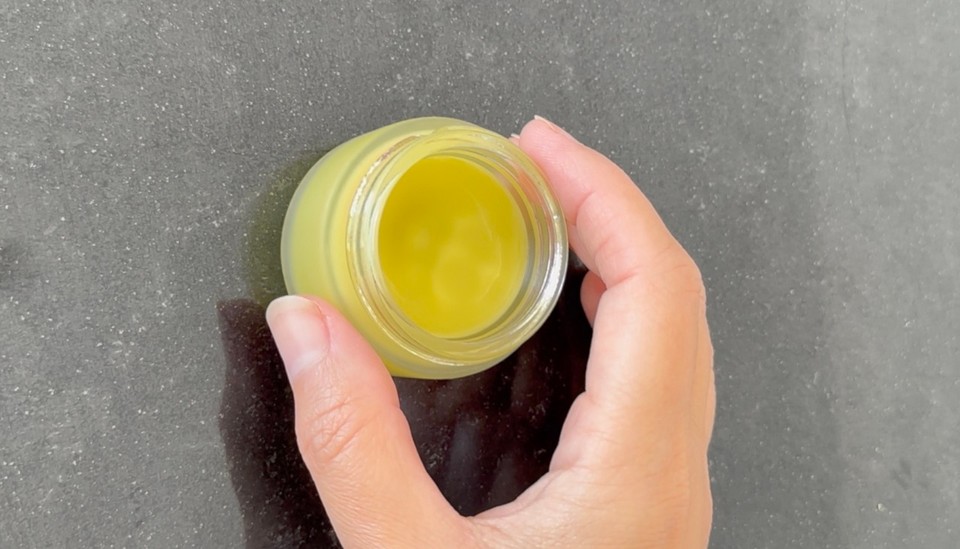
Rice bran wax is a natural, plant-based wax that thickens lip butter. It helps stabilize the formulation and provides a smooth, non-greasy texture. Its antioxidant properties also contribute to skin protection and repair. You can use beeswax or candelilla wax instead, but you might want to change the amount to achieve a similar consistency to the lip butter I made.
If you use beeswax, the product will no longer be vegan. You can read more about waxes in cosmetics here.
Apricot kernel oil is lightweight and rich in vitamins A and E, which help to nourish and soften the lips. It absorbs quickly, providing hydration without leaving a greasy residue. Its gentle nature makes it suitable for sensitive skin. You can use Peach Kernel Oil or Grapeseed Oil instead.
Squalane is a plant-derived oil that hydrates and protects the skin. It mimics the skin's natural oils, helping to maintain moisture balance and prevent dehydration. Its lightweight nature makes it perfect for lip care. You can replace it with coco caprylate or argan oil.
Isopropyl myristate is used to improve the spreadability of the lip butter, allowing for a smooth application. It also helps to enhance the absorption of other ingredients, ensuring that the nourishing properties reach the lips effectively. You can replace it with Caprylic/Capric Triglyceride or fractionated coconut oil. Vitamin E is a potent antioxidant that helps to protect the lips from environmental damage.
If you don't have vitamin E, you can use rosehip seed oil (which contains a significant amount of vitamin E and other vitamins and essential fatty acids) or jojoba oil.
When you use essential oil in lip products, read the supplier's instructions on the specific essential oil you chose and make sure it is safe for lip products. You can make this lip butter treatment flavor and fragrance-free by skipping the flavored/essential oil and adding the amount to the avocado oil.
Use the calculator to adjust the amount you wish to make. For a small jar or 4 lip balm tubes you can make 20-25g of this formula.
Method:
- In a heat resistance beaker, add all the ingredients from phase A.
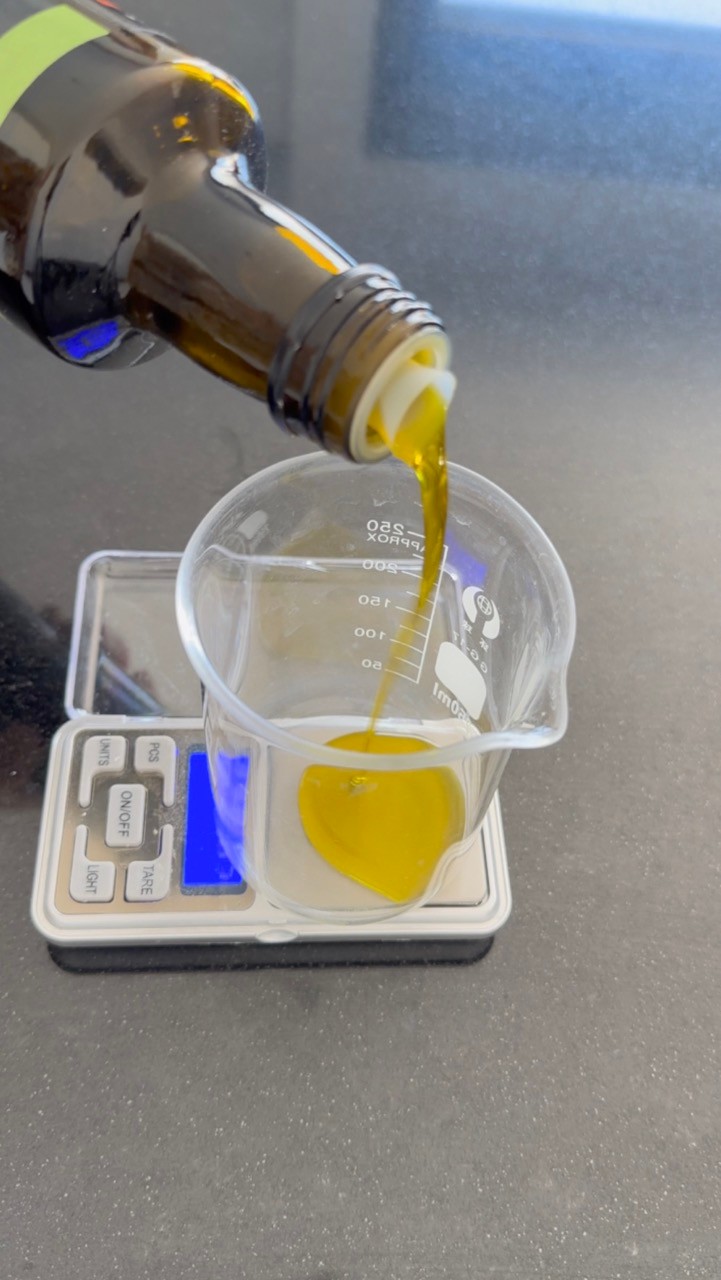
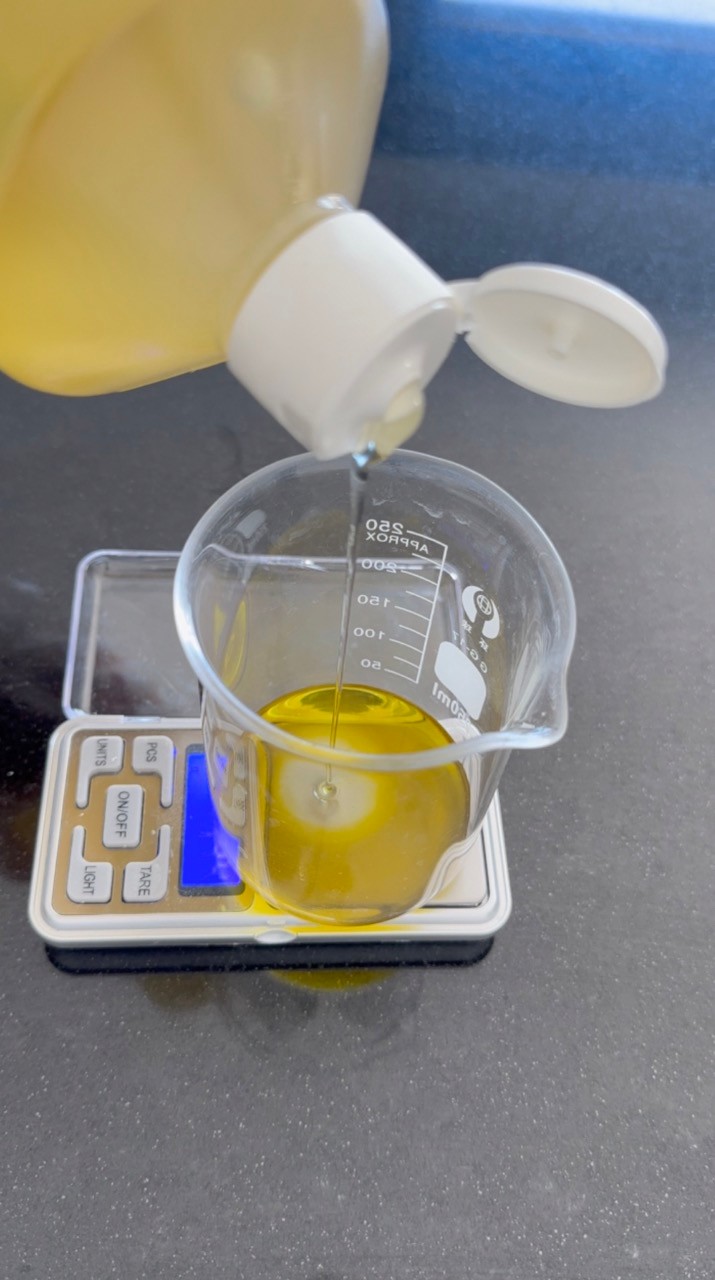
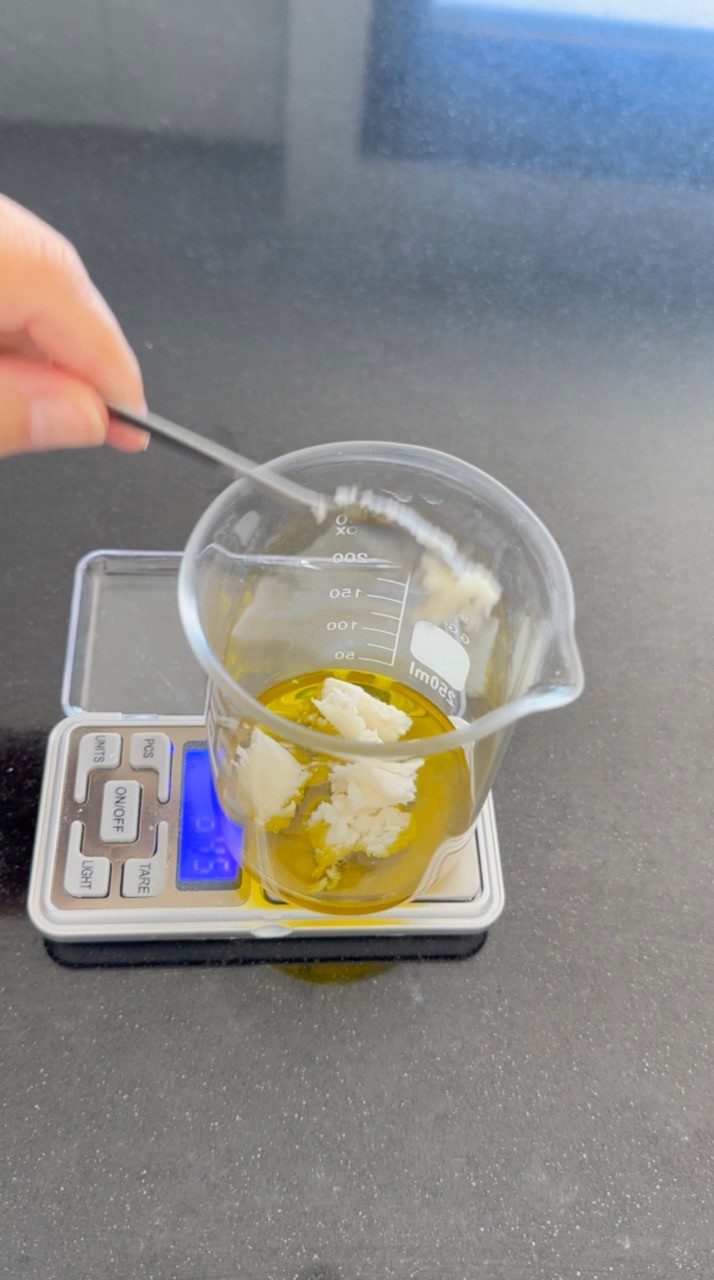
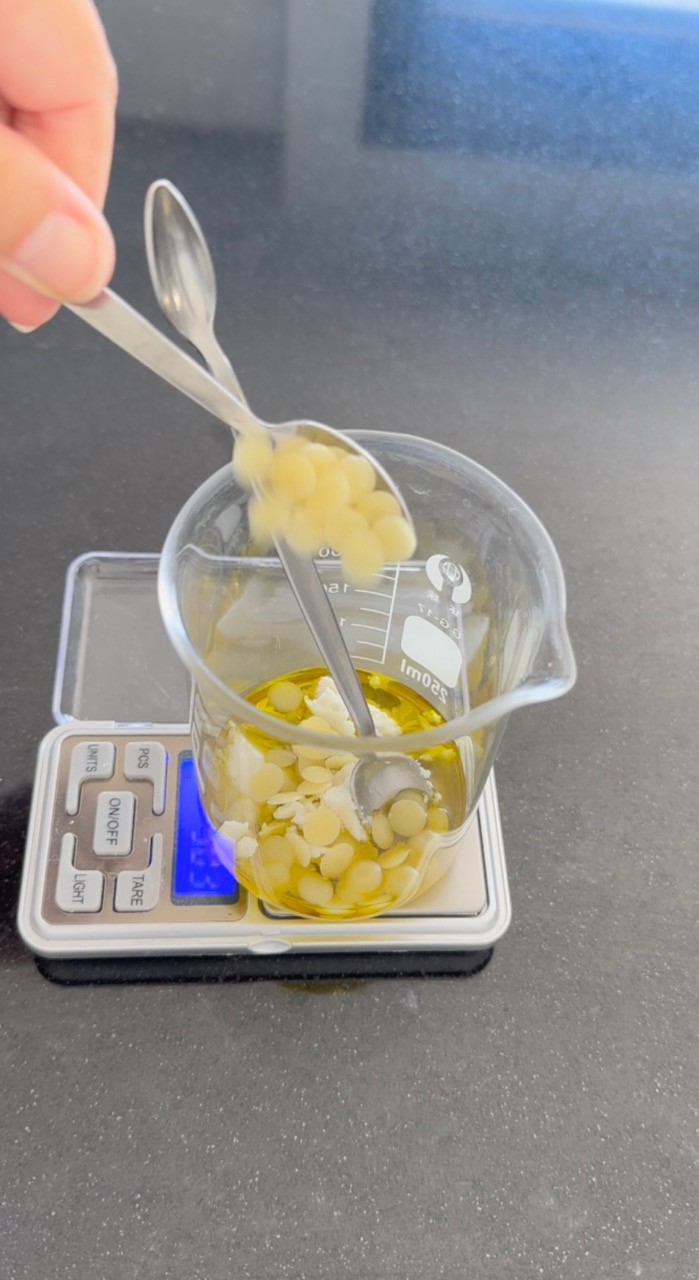
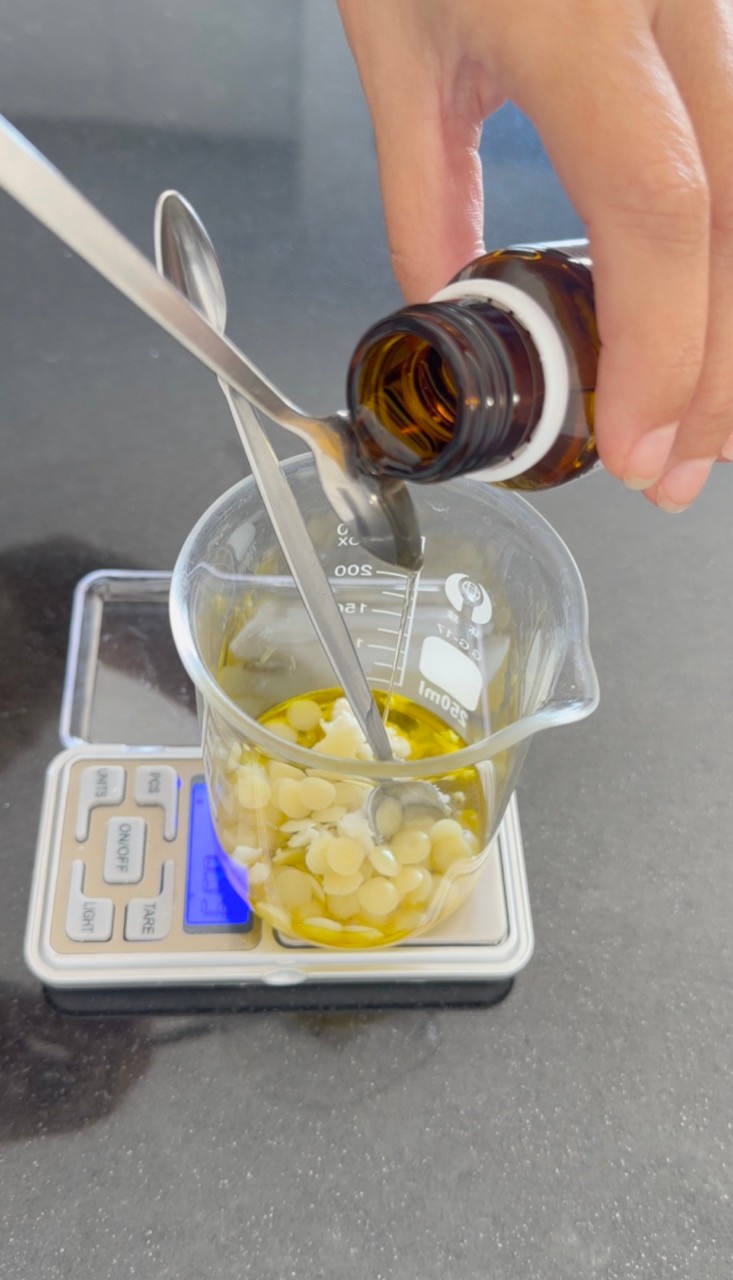
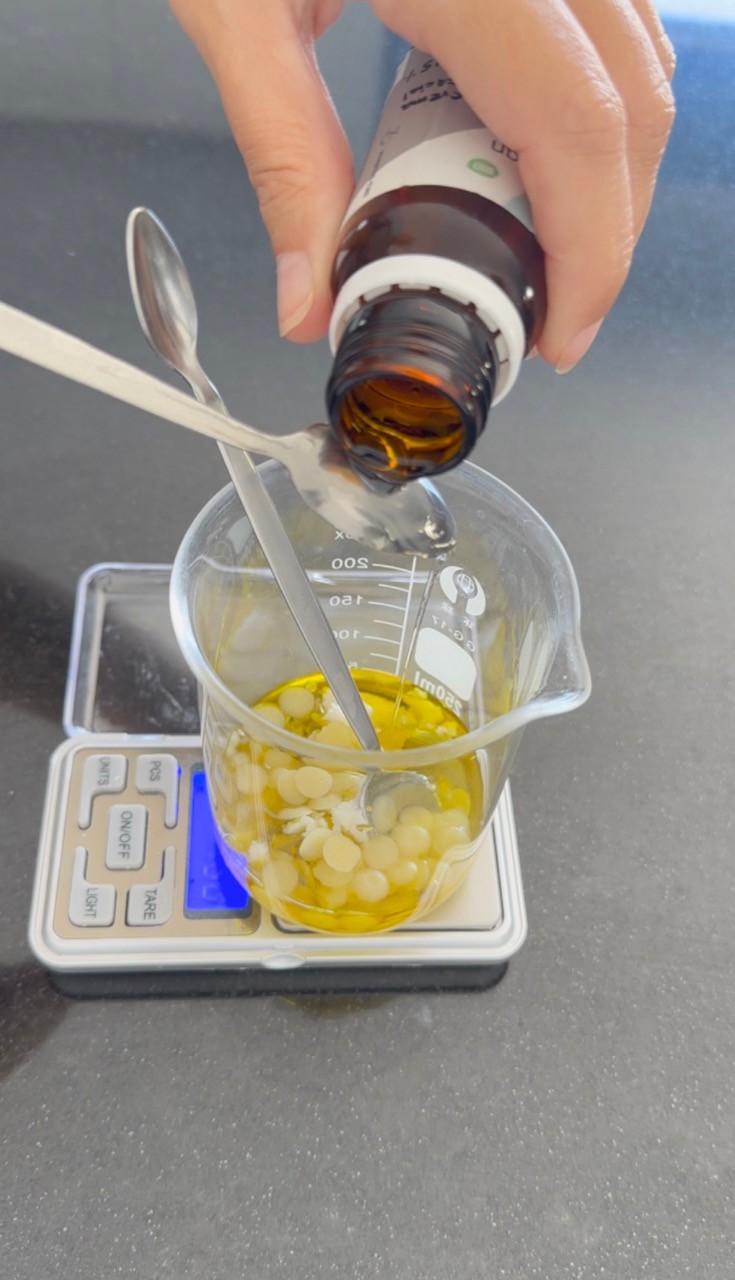
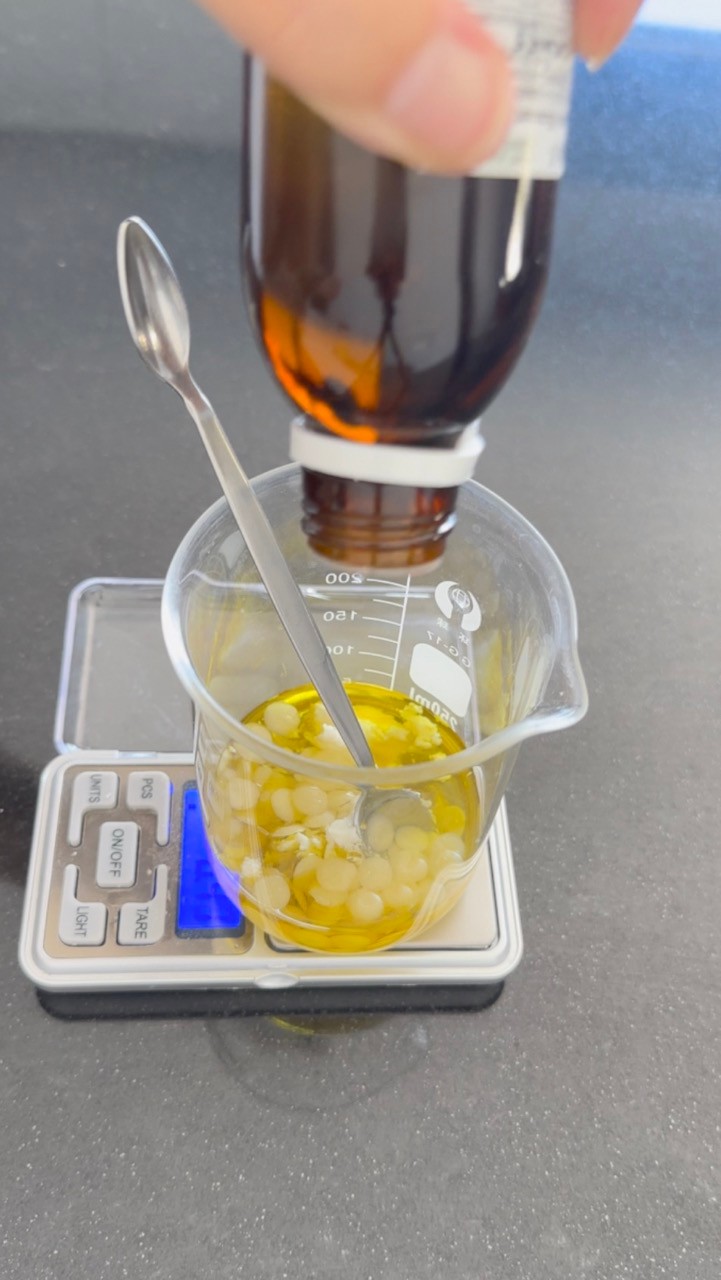
- Place the beaker into a double boiler on low-medium heat for 20 minutes to melt the butter and wax.
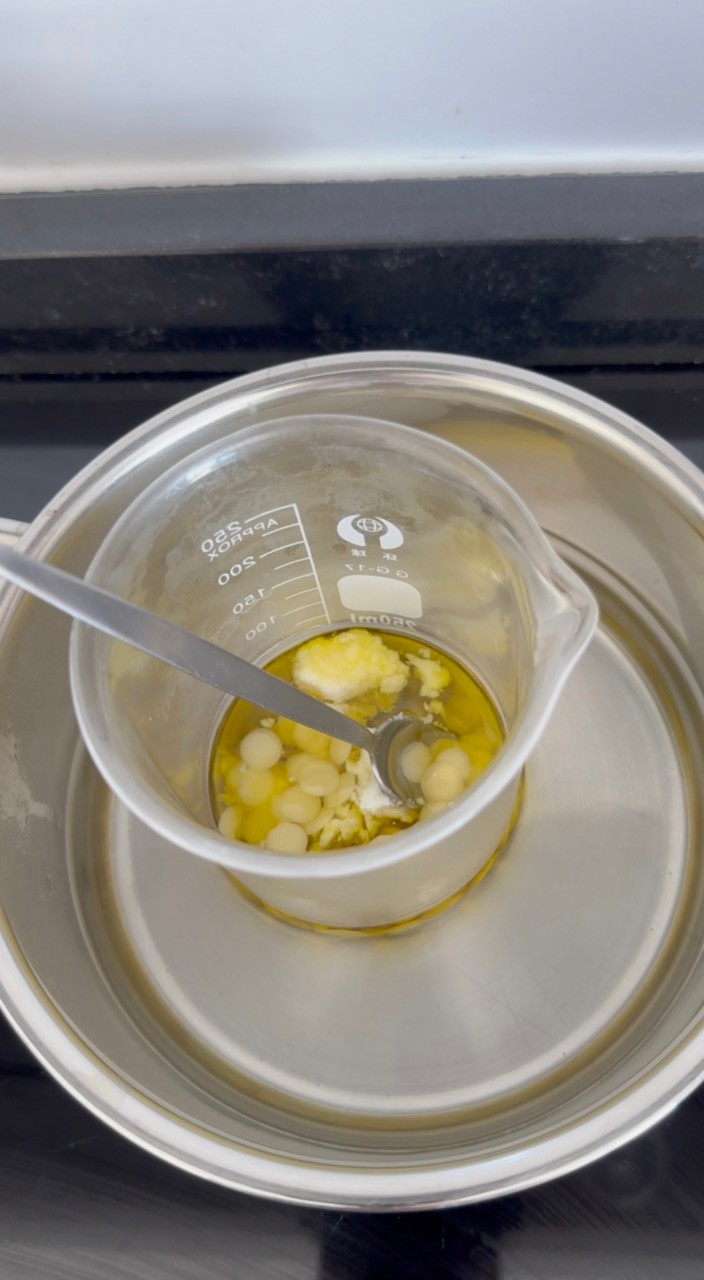
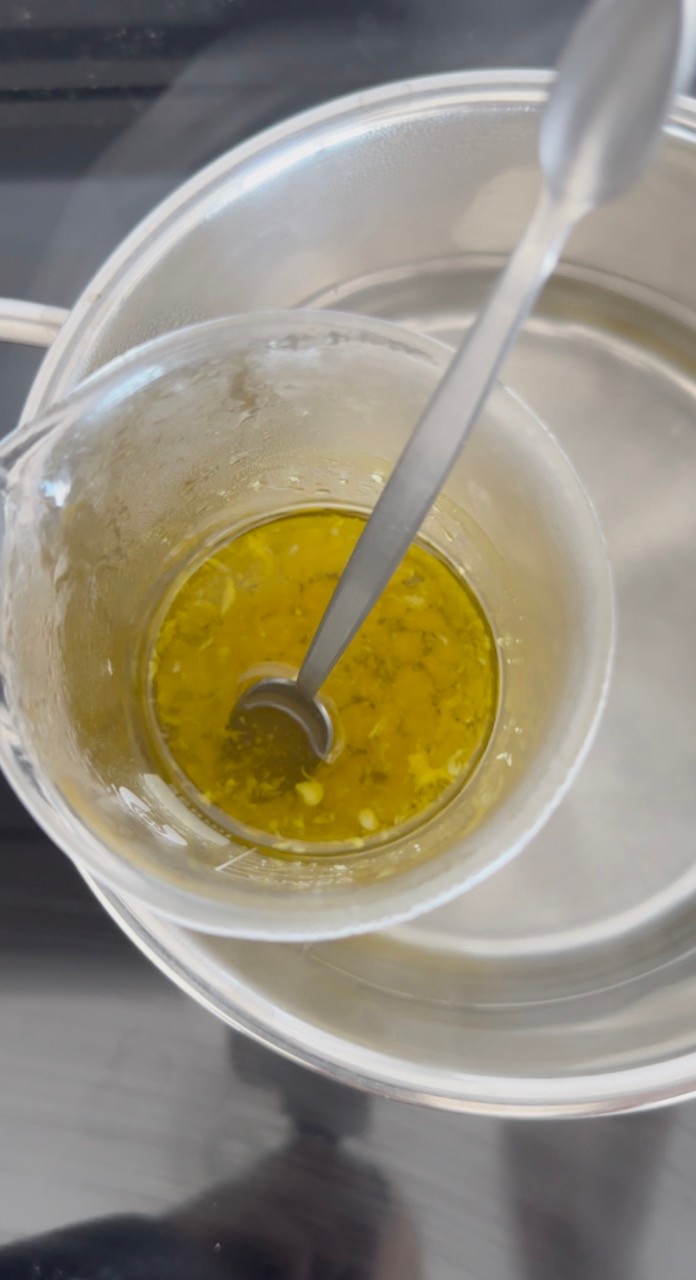
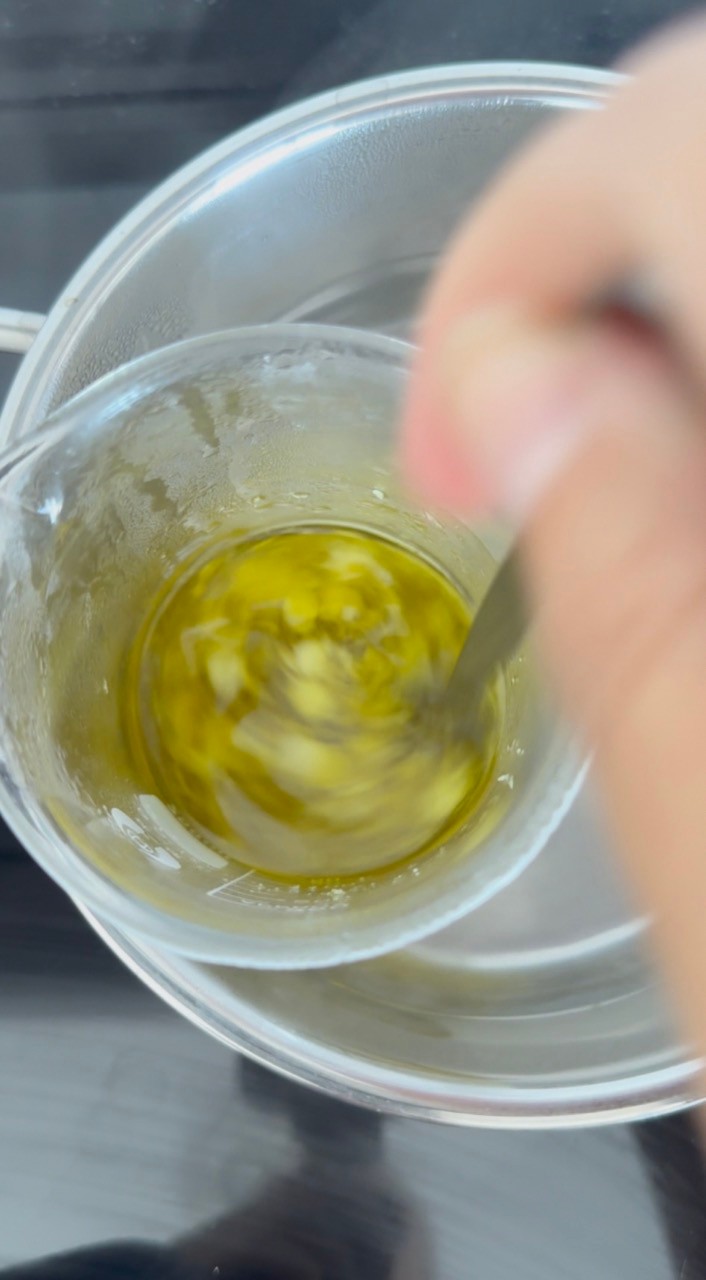
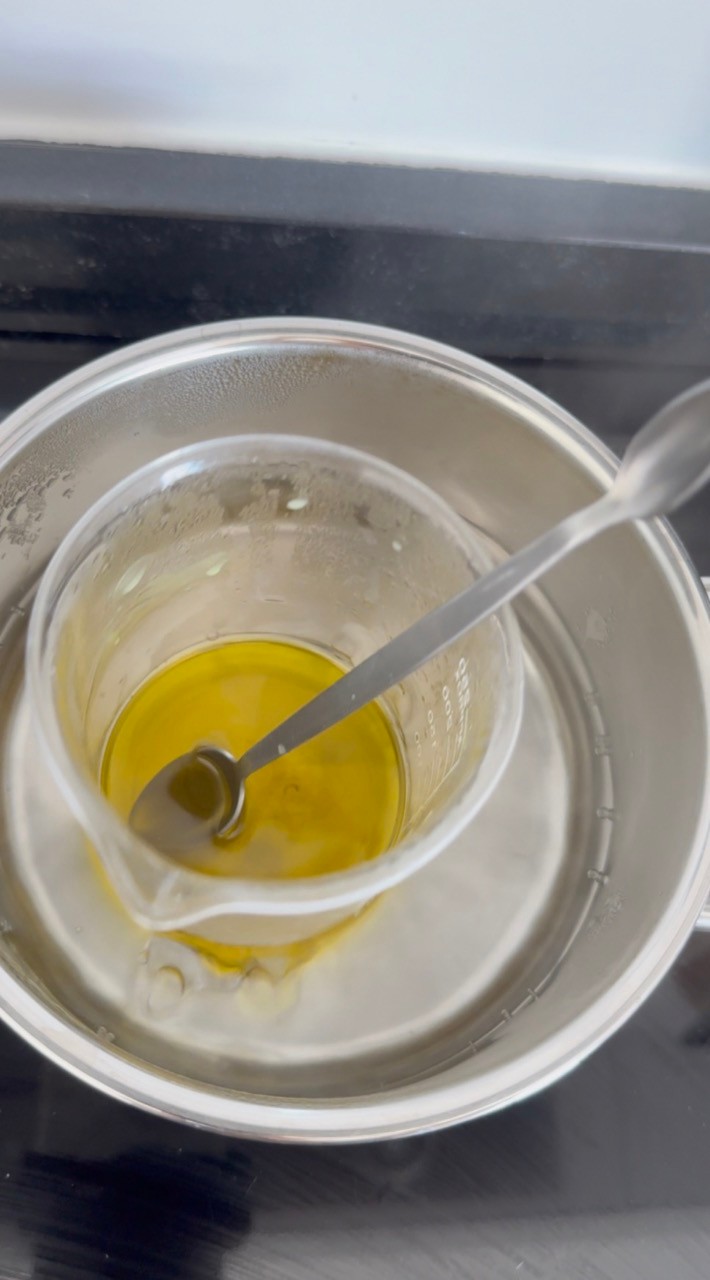
- In another container prepare phase B (vitamin E and the flavored oil).
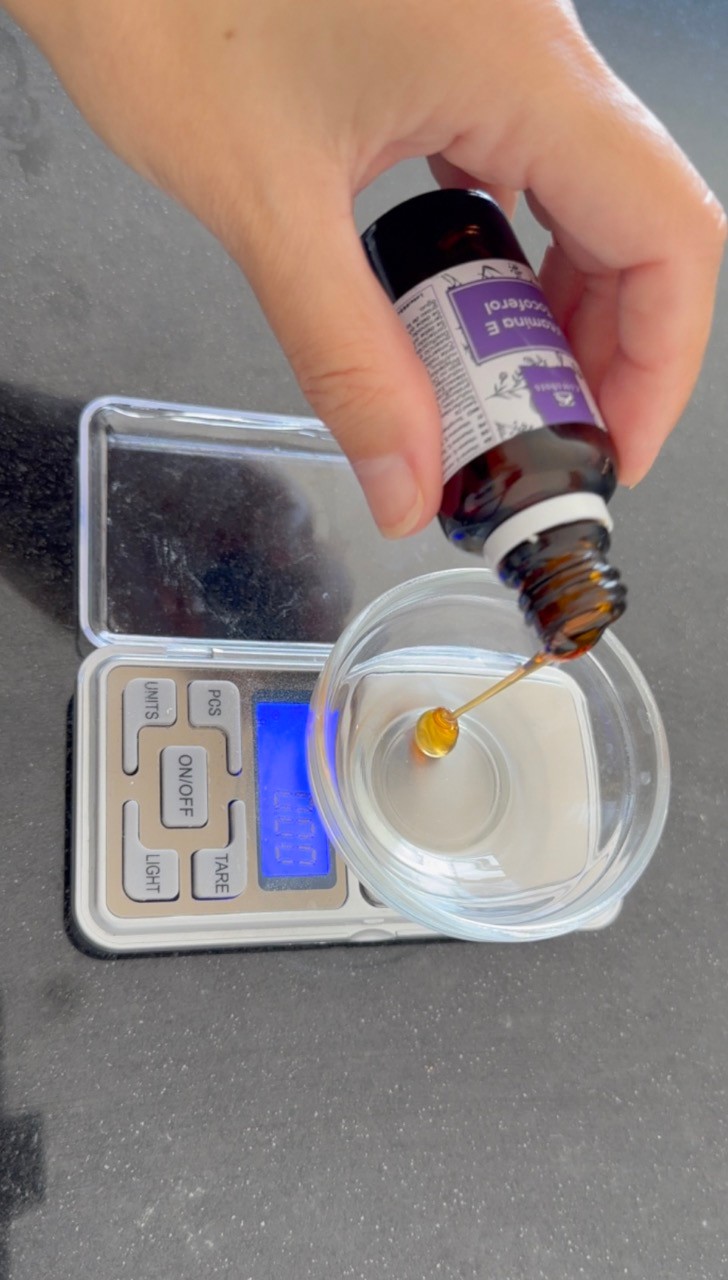
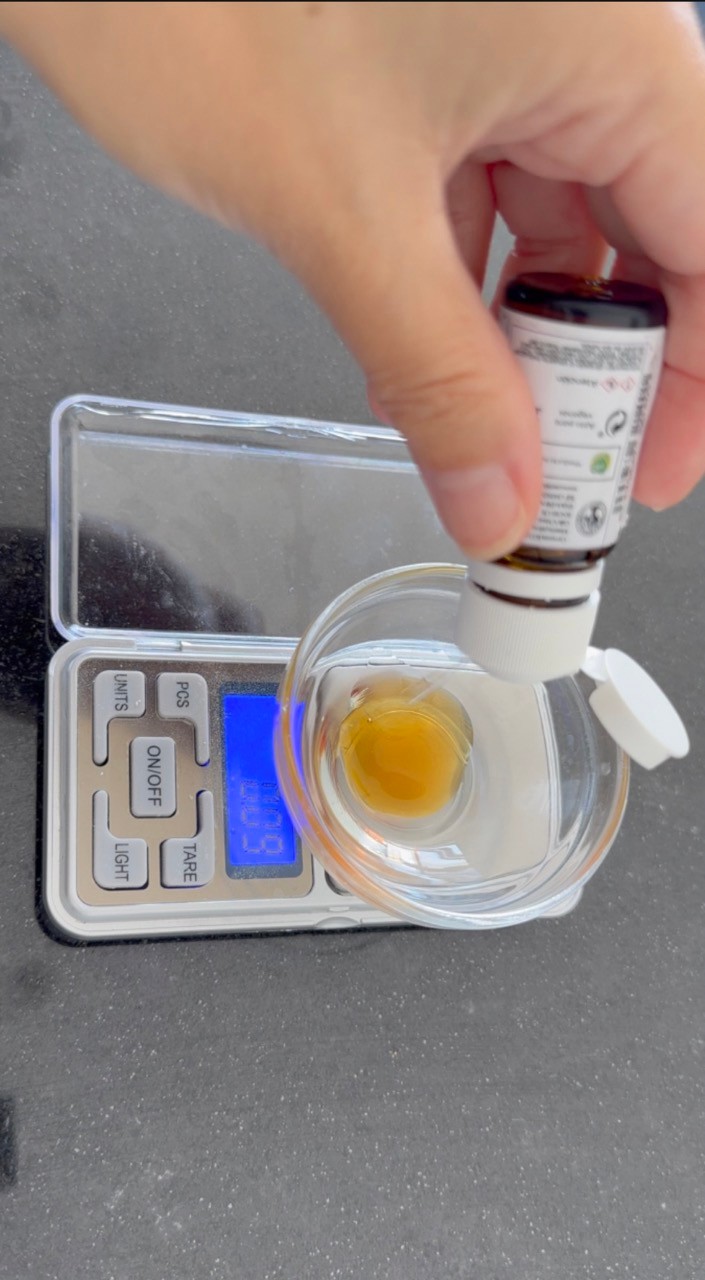
- Remove phase A from the heat. Add phase B and stir to combine.
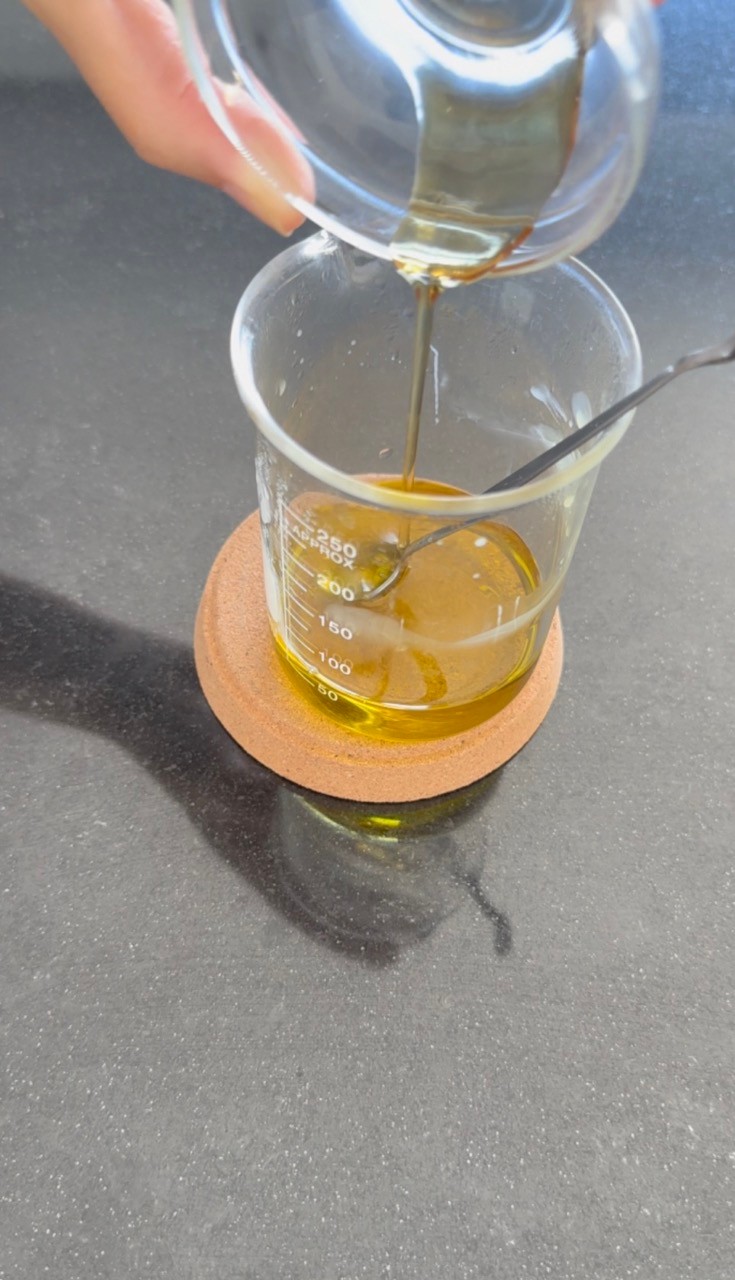
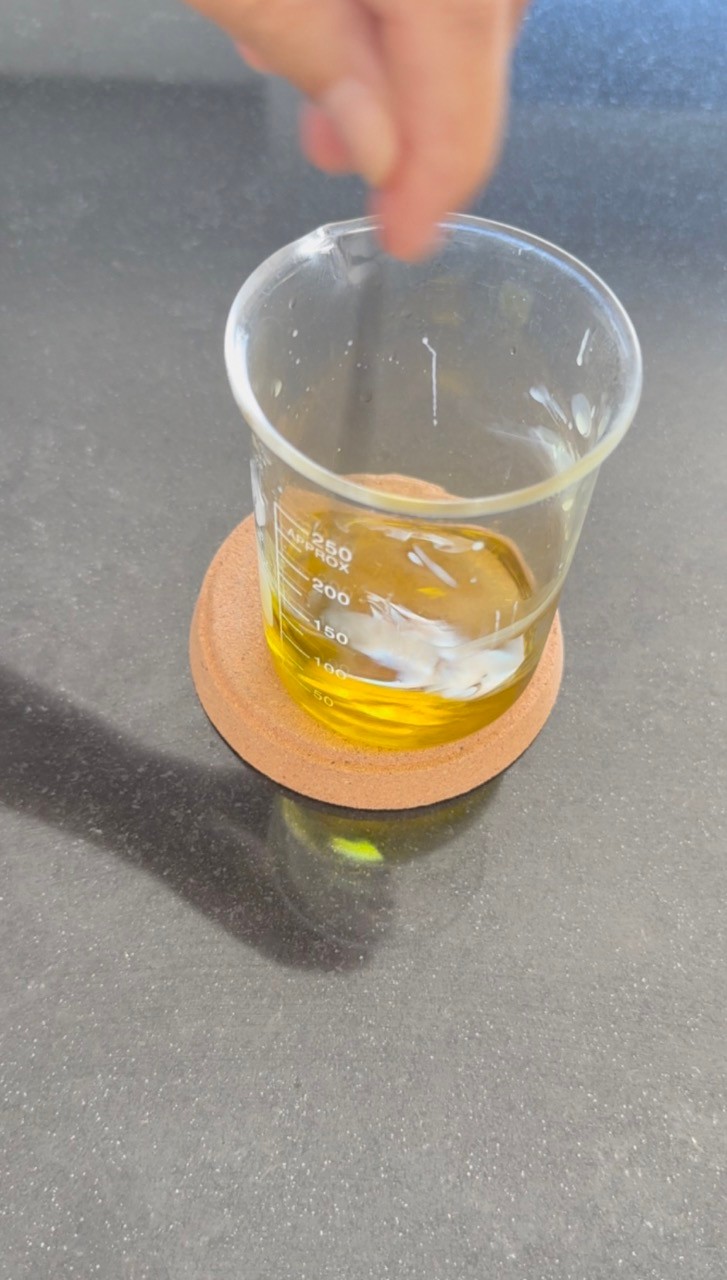
- Pour into a jar container and let it cool down to room temperature.
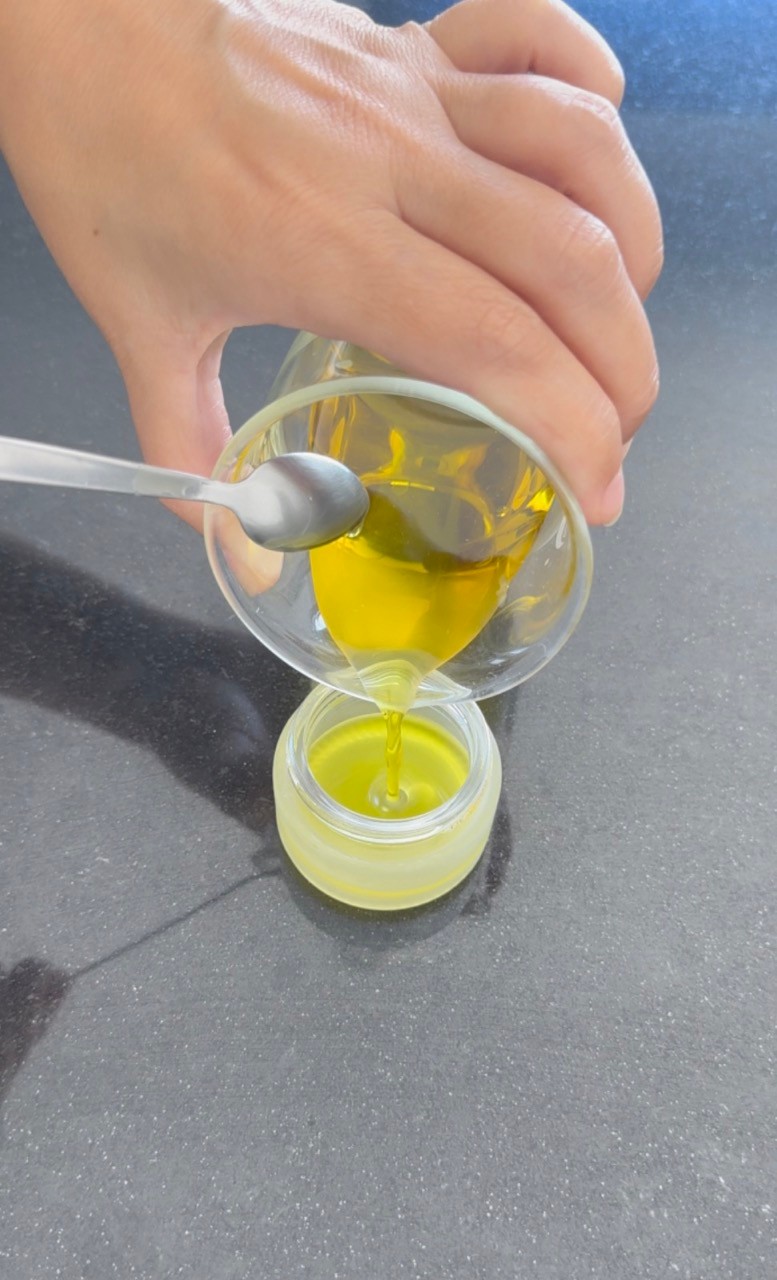
- Apply the lip butter treatment as needed to nourish the lips. For an overnight treatment, apply a generous amount before bed.
